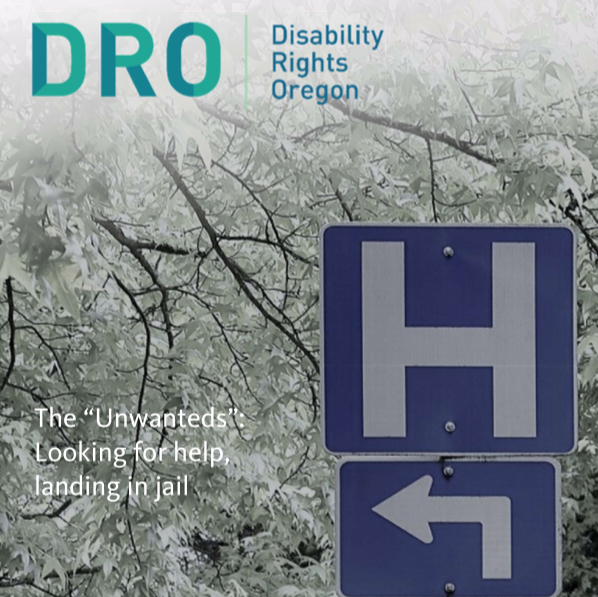CJRC Examines Trespass Arrests at Portland Hospitals
Open gallery

The Criminal Justice Reform Clinic (CJRC) at Lewis & Clark College joined forces with Disability Rights Oregon (DRO) to evaluate Portland Police Bureau trespass arrests at hospitals over a one year period. The resulting report, titled “The Unwanteds: Looking for Help, Landing in Jail,” found that in 94 percent of the cases – representing 133 of the 142 times hospitals called police about an “unwanted person,’’ the subject of the call ended up arrested and booked into jail.
In addition, homeless people, people of color and people suffering from mental health problems were disproportionately represented among those arrested for trespass at hospitals. While nearly all landed in jail, only a quarter appeared to present a risk of violence, the report said.
Clinic students Brittany Hill ’19 and Lynette Belsky ’20 conducted research for this report by reading through police reports and finding outcomes for each case.
Belsky noted that in many of the reports, people arrested for hospital trespass specifically requested to go to jail because they had no other place to go. “This was heartbreaking to me,” Belsky said. “Jail should not be the ‘solution’ for people who have nowhere else to go. As a community, we can and should do better than this.”
“It’s evident of a bigger problem in our community and our criminal justice system,” Hill said. “I’m hopeful that this report can start tough conversations and be the impetus for hospitals and police to change their policies.”
The report highlights the harm this has on individuals and society at large. When people with mental health needs are incarcerated, the report states, “risk of suicide is heightened, solitary confinement is often the default placement for people whose behavior does not conform and mental health crisis is routinely met with force, discipline, lock-down and the use of restraints.”
According to the report, the cost of imprisoning “unwanted” patients puts enormous pressure on tax-funded institutions that cannot support the influx of inmates.
“CJRC was honored to team up again with Disability Rights Oregon to examine the important issues and practices addressed in this report,” said CJRC director Aliza Kaplan. “Our partnership on this study allowed Clinic students, Brittany Hill and Lynette Belsky, to learn in depth about an area where our criminal justice system needs significant reform and be a part of changing it. I am confident that this report and all their hard work will be a part of making important changes to these issues.”
CJRC and DRO believe there is a more humane and cheaper way to handle this delicate issue. “We’re calling on hospitals to overhaul their trespass policies and to increase their investments in supportive housing and a non-law enforcement street response,” Sarah Radcliffe, Managing Attorney at DRO, said.
Law Communications is located in room 304 of Legal Research Center (LRC) on the law Campus.
MSC: 51
email jasbury@lclark.edu
voice 503-768-6605
Cell: 626-676-7923
Assistant Dean,
Communications and External Relations, Law School
Judy Asbury
Law Communications
Lewis & Clark Law School
10101 S. Terwilliger Boulevard MSC 51
Portland OR 97219

